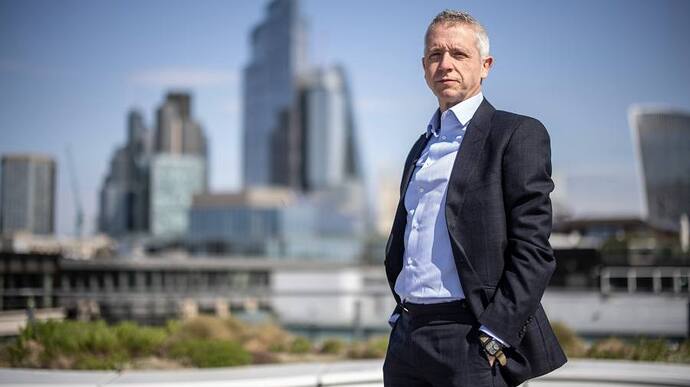The Democratic Republic of Congo, also known as the DRC or simply Congo, is a country located in Central Africa. With an area of approximately 2.3 million square kilometers, it is the second-largest country in Africa and the 11th largest in the world. The population of the country is estimated to be around 90 million, making it the fourth most populous country in Africa.
Geography
The DRC is located in the heart of Africa and is bordered by nine countries: Angola, Burundi, Central African Republic, Republic of the Congo, Rwanda, South Sudan, Tanzania, Uganda, and Zambia. The country’s terrain is mostly tropical rainforest, with mountains, savannas, and plateaus found in the eastern and southern regions.
The Congo River, the world’s deepest river, runs along the northern boundary of the country and is the second-longest river in Africa. The river flows through the country’s dense rainforests and provides an important source of livelihood for the Congolese people. The river also serves as a major transportation route for goods and people.
Climate
The DRC has a tropical climate, with high temperatures and high humidity throughout the year. The average temperature is around 25 degrees Celsius (77 degrees Fahrenheit), but it can range from 10 to 40 degrees Celsius (50 to 104 degrees Fahrenheit) depending on the season and location. The country experiences two main rainy seasons, from March to May and from October to November, and two dry seasons, from June to September and from December to February.
History
The DRC was first colonized by Belgium in the late 19th century as a part of King Leopold II’s personal colonial empire. During this time, the Congolese people suffered from brutal exploitation and atrocities committed by the colonial authorities. In 1908, the Belgian government took over control of the colony and established a paternalistic, but still exploitative, rule.
In 1960, Congo gained independence from Belgium, and Patrice Lumumba became the country’s first prime minister. However, this was short-lived, and in 1965, Mobutu Sese Seko took power in a coup and became the country’s sole ruler for over three decades. Mobutu’s regime was characterized by corruption, human rights abuses, and economic mismanagement.
In 1997, Mobutu was overthrown by Laurent Kabila, who proclaimed himself president and renamed the country the Democratic Republic of Congo. Kabila’s regime was also marred by corruption and human rights abuses. In 2001, Kabila was assassinated, and his son, Joseph Kabila, took over as president.
In recent years, the DRC has experienced ongoing civil unrest, including several wars, massacres, and humanitarian crises. The country is also plagued by corruption, poverty, and poor living conditions for its citizens.
Politics
The DRC is a semi-presidential republic with a multi-party system. The president is elected by popular vote for a maximum of two 5-year terms. The parliament consists of two chambers: the National Assembly, with 500 members elected for a 5-year term; and the Senate, with 108 members elected for a 5-year term.
The current president of the DRC is Félix Tshisekedi, who came to power in 2019. His administration has faced criticism for its handling of human rights abuses, political repression, and corruption.
Economy
The DRC has a wealth of natural resources, including copper, cobalt, gold, diamonds, and timber. However, the country’s economy remains underdeveloped and heavily reliant on the export of raw materials. The country’s GDP is estimated at $49.4 billion, with a GDP per capita of around $480.
The DRC faces several challenges in developing its economy, including insufficient infrastructure, poor governance, and ongoing conflict and instability in several regions of the country. The country is also highly susceptible to fluctuations in global commodity prices, which can affect its export revenues.
Culture
The DRC is home to a diverse range of ethnic groups, with over 200 languages spoken throughout the country. The official language is French, but Lingala, Swahili, and other local languages are also widely spoken.
Music is an important part of Congolese culture, with several styles of music originating from the country, including rhumba, soukous, and ndombolo. Congolese fashion is also gaining international recognition, with several fashion designers from the country making a name for themselves on the global stage.
Conclusion
The Democratic Republic of Congo is a country with a rich history and culture, but also one that is facing several challenges in terms of economic development, political stability, and human rights. Despite these challenges, the country remains a land of great potential, with abundant natural resources and a resilient and diverse population.
Disclaimer
6do Encyclopedia represents the inaugural AI-driven knowledge repository, and we cordially invite all community users to collaborate and contribute to the enhancement of its accuracy and completeness.
Should you identify any inaccuracies or discrepancies, we respectfully request that you promptly bring these to our attention. Furthermore, you are encouraged to engage in dialogue with the 6do AI chatbot for clarifications.
Please be advised that when utilizing the resources provided by 6do Encyclopedia, users must exercise due care and diligence with respect to the information contained therein. We expressly disclaim any and all legal liabilities arising from the use of such content.














